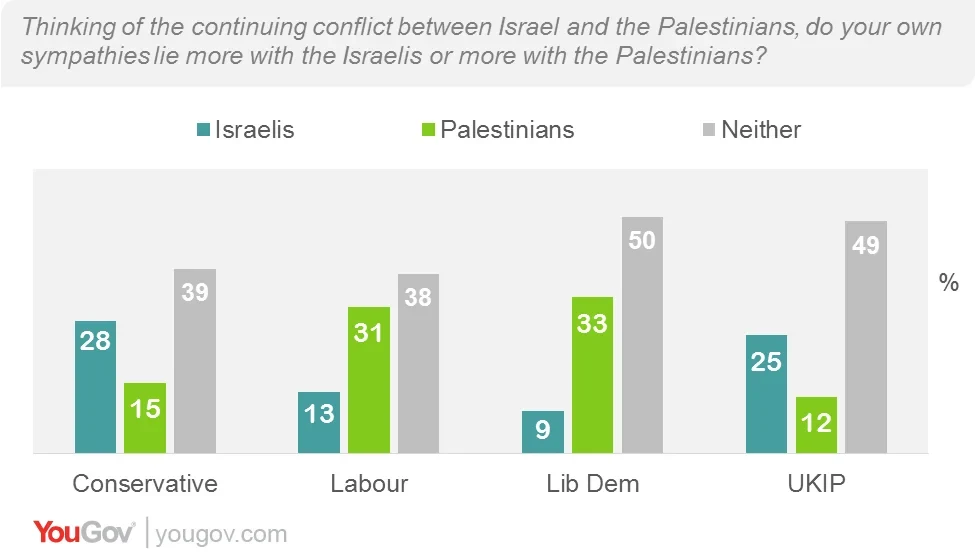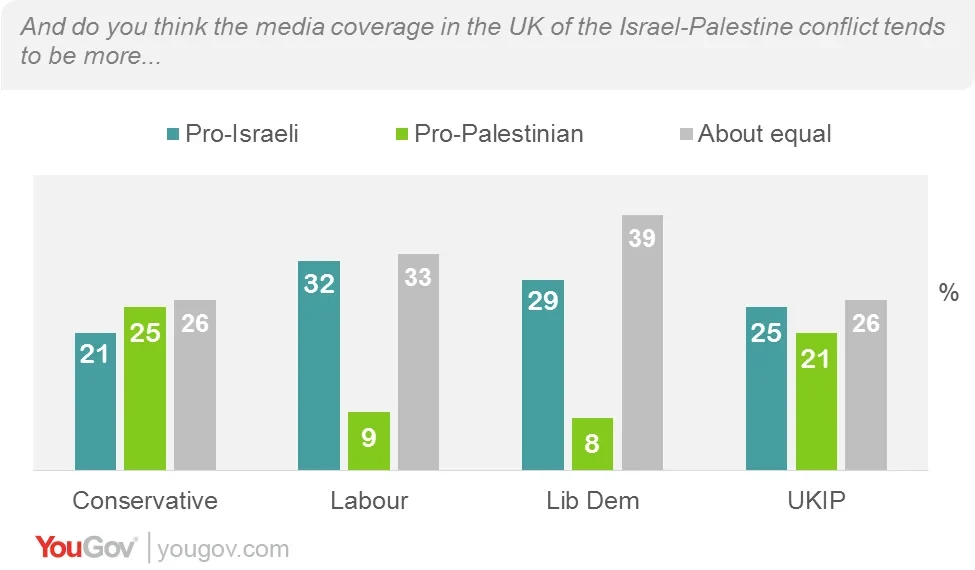Conservative and Labour voters have opposing views on the conflict – and each group tends to think the British media is biased on the opposite side
David Cameron makes his first trip to Israel as Prime Minister this week, a journey interrupted earlier in the year by the floods and almost halted again yesterday by striking diplomats.
He is to meet Israeli Prime Minister Benjamin Netanyahu and to deliver a speech to the country's parliament. But where do British public sympathies lie on this politically charged issue?
Overall 16% say their sympathies lie with Israelis, 22% with Palestinians, 41% with neither and 22% don't know. Among those who do have allegiances, however, there are clear political divides.

Conservative and UKIP voters are more sympathetic to Israelis, by 28-15% and 25-12% respectively.
In contrast, Labour and Liberal Democrat voters are more sympathetic to Palestinians, by 32-13% and 33-9% respectively
Younger voters are less pro-Israeli (10% of 18-24s compared to 21% of over 60s), however they are not more pro-Palestinian; they are simply more likely to be unsure.
The media
Clearer than overall sympathy is the feeling that the media has taken sides: 25% say UK media coverage of the Israel-Palestine conflict is pro-Israeli; 14% say it is pro-Palestinian and 28% say it is about equal.
Interestingly, many voters think the media represents the side they have less sympathy for. While Conservative voters are more likely to be pro-Israeli, they say the media favours Palestinians by 25-21%. And while Labour voters are more likely to be pro-Palestinian, they say the media favours Israelis by 32%-9%.

David Cameron angered Israel on a trip to Turkey in 2010, when he said that Israel’s blockade of the Gaza Strip had turned the Palestinian territory into a “prison camp”. During this visit, Mr Cameron will seek to ease concerns in Israel that the West are softening to Iran.
Image: Getty






